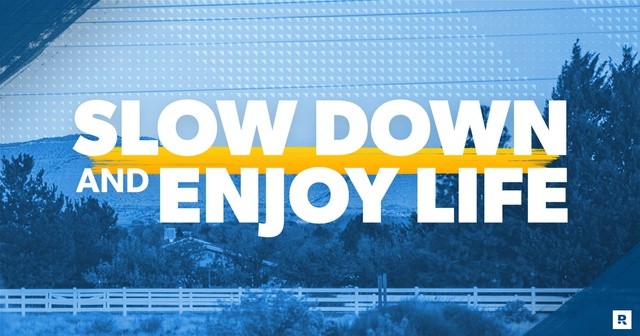
In a business culture that often equates speed with success, the idea of slowing down can feel counterintuitive. We’re conditioned to chase growth aggressively, to scale quickly, and to stay ahead of the curve at all costs. But what if the most transformative growth doesn’t come from acceleration, but from intentional deceleration? Slowing down to grow isn’t about losing momentum—it’s about gaining clarity, depth, and direction. It’s a strategic pause that allows businesses to reflect, recalibrate, and realign with what truly matters.
When a business slows down, it creates space for introspection. This is where foundational questions can be asked and answered with honesty: What are we really trying to achieve? Who are we serving? Are we staying true to our values? These questions often get buried under the weight of deadlines and deliverables, yet they are essential to sustainable growth. By stepping back, leaders can examine not just the metrics, but the meaning behind them. They can identify misalignments, uncover blind spots, and make decisions that are rooted in purpose rather than pressure.
Slowing down also enhances the quality of relationships—internally and externally. Within teams, it fosters deeper communication, more thoughtful collaboration, and a culture of psychological safety. Employees feel less like cogs in a machine and more like contributors to a shared vision. This shift can lead to increased engagement, creativity, and retention. Externally, customers benefit from a business that listens more attentively, responds more thoughtfully, and builds trust through consistency. A company that takes the time to understand its audience is better positioned to meet their needs in meaningful ways.
One of the most powerful outcomes of slowing down is the ability to innovate with intention. In the rush to launch new products or enter new markets, businesses can overlook critical details or miss emerging trends. But when time is taken to observe, research, and experiment, innovation becomes more grounded and impactful. Consider how some of the most successful brands have taken deliberate pauses to rethink their strategies. Rather than reacting impulsively to competition or market shifts, they’ve chosen to refine their offerings, improve their processes, and invest in long-term value. This kind of innovation isn’t flashy—it’s enduring.
Financially, slowing down can also lead to smarter resource allocation. Rapid growth often comes with high costs—hiring sprees, marketing blitzes, and infrastructure expansion. While these investments can pay off, they can also strain cash flow and create operational inefficiencies. A more measured approach allows businesses to assess what’s working, eliminate waste, and prioritize investments that yield sustainable returns. It’s not about being frugal—it’s about being strategic. Growth that’s paced and purposeful tends to be more resilient in the face of economic fluctuations.
There’s also a human dimension to this philosophy. Leaders who slow down are more present, more empathetic, and more attuned to the needs of their teams. They’re not just managing—they’re mentoring. They create environments where reflection is valued, where learning is continuous, and where growth is not just vertical but holistic. This kind of leadership inspires trust and loyalty, and it sets the tone for a business that values depth over speed.
Of course, slowing down doesn’t mean stagnating. It’s not about avoiding risk or resisting change. It’s about choosing the right pace for the right moment. There are times when acceleration is necessary—when opportunities arise, when momentum builds, when the market demands agility. But even in those moments, a foundation built on thoughtful growth will hold stronger. Businesses that have taken the time to build clarity, cohesion, and capacity are better equipped to scale without losing their soul.
In practice, slowing down might look like revisiting your brand story, investing in team development, or conducting a thorough customer journey analysis. It might mean saying no to a tempting partnership that doesn’t align with your values, or delaying a product launch to ensure quality. These decisions require courage, especially in a culture that celebrates hustle. But they also reflect wisdom—the understanding that growth is not a race, but a rhythm.
Ultimately, when a business slows down to grow, it becomes more intentional, more connected, and more resilient. It learns to move with purpose rather than urgency, to build with care rather than haste, and to lead with vision rather than reaction. In doing so, it doesn’t just grow—it evolves. And that evolution, grounded in reflection and guided by authenticity, is what sets truly enduring businesses apart.